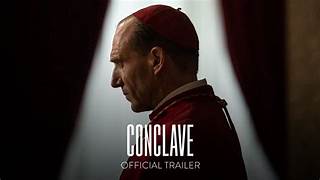An upcoming film titled Conclave promises to pull back the veil on one of the most secretive and fascinating rituals in the world: the election of a new pope in the Roman Catholic Church. Set to release this fall, Conclave delves into the dramatic process that begins after the death or resignation of a sitting pope, offering viewers a glimpse into the age-old customs, complex politics, and spiritual significance surrounding the election of the leader of more than a billion Catholics worldwide.
The term “conclave” comes from the Latin cum clavis, meaning “with a key,” referring to the tradition of locking the doors of the Sistine Chapel where cardinals gather to vote, sealing themselves off from the outside world until a new pope is chosen. This practice began in the 13th century, when Catholic cardinals were locked inside to expedite the process after a particularly drawn-out election. Historically, papal conclaves could stretch for weeks or even months, often marked by intense political maneuvering, external pressures, and, at times, unusual circumstances.
One of the most famous early conclaves occurred in 1268, when the election following Pope Clement IV’s death dragged on for nearly three years. Growing impatient with the delay, the citizens of Viterbo, Italy, took drastic measures—locking the cardinals inside the building, rationing their food, and even removing the roof to hasten their decision. These tactics eventually worked, and Pope Gregory X was elected. In response, he established new rules that formalized the modern conclave process, including the seclusion of cardinals to prevent outside influence.
Over the centuries, the process has remained shrouded in mystery, with strict protocols to ensure the election’s integrity. Only cardinals under the age of 80 are allowed to vote, and the ritual is steeped in ceremony, from the cardinals’ initial vow of secrecy to the use of paper ballots that are burned after each vote. It is from the smoke rising from the Sistine Chapel’s chimney that the world learns the outcome: black smoke signifies an inconclusive vote, while white smoke signals the election of a new pope.
While the election of a pope is ultimately a spiritual decision, guided by the belief that the Holy Spirit influences the cardinals’ vote, political, regional, and doctrinal dynamics often play significant roles. Historically, some conclaves have witnessed behind-the-scenes power struggles, as factions within the College of Cardinals vie for influence. Conclave will likely explore this intersection of faith and politics, capturing the tension and complexity that unfolds within the chapel’s walls.
The film will also shed light on the modern papal elections, where the weight of choosing a pope carries immense global significance. Recent elections, like those of Pope Benedict XVI in 2005 and Pope Francis in 2013, were notable not only for their speed but for how they reflected the evolving priorities of the Church. Francis, for instance, is the first pope from the Americas and a figure seen as emphasizing social justice and reform.
Audiences can expect Conclave to offer a blend of historical reflection and contemporary relevance. The film will no doubt explore the human drama that accompanies the decision to select the next pope, the man who will lead the Catholic Church through modern challenges while maintaining the weight of centuries of tradition. For those interested in the intersection of faith, history, and power, Conclave is shaping up to be a must-watch event this fall.

Be the first to comment on "New Film “Conclave” to Explore the Secrets of Papal Elections"